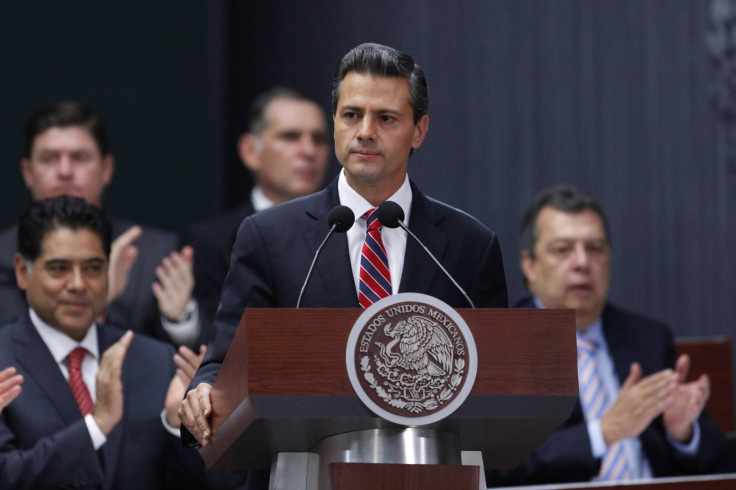Business Owners Don't Like Mexico's Fiscal Reform

As the sweeping package of economic and fiscal reforms proposed by Mexican president Enrique Peña Nieto makes its way to the Senate, several critical voices have been raised against it. Business owners want to make their demands heard, and even legislators from the opposition Partido de la Revolución Democrática (PRD) who initially supported the original proposal, now want modifications. Whatever happens, the reform will have to be finally approved, or rejected, by Oct. 31.
President Enrique Peña Nieto, who was the biggest proponent of the reform from day one, tried to calm down the agitated atmosphere, saying that it is “normal that there’s controversy” because the reform is “of great importance and spans across the interests of several sectors.”
María Fernanda Garza, president of the business lobby International Chamber of Commerce in Mexico, warned that, if the reform succeeds as it is, “Mexico will lose competitiveness and be at a disadvantage in the region -- many foreign companies will move to other countries.”
The largest worries among businesspeople and entrepreneurs are the increase in the rates of taxation, the lack of tax deductibility of benefits like health insurance, and a rise of the VAT from 11 percent to 16 percent. “We were expecting measures to strengthen job creation, and instead, because of all the restrictions, many small companies will start working informally,” Garza said.
If Garza turns out to be right, it would mean the reform failed in one of its key aspects: integrating informal workers into the legitimate workforce. Currently, 60 percent of Mexicans work informally, and do not pay taxes. The reform proposal outlined a plan to gradually incorporate them into the taxpayer base.
The PRD's biggest concern is that the new tax plan affects the middle class the most. Leader Miguel Barbosa knows that he holds the key to the passing of the reform: By itself, the governing Partido Revolucionario Institucional (PRI) does not have enough votes to approve the reform. The other opposition party, Partido de Acción Nacional (PAN), was always against it, but PRI and PRD had reached an agreement on the issue. If the PRD backs down now, the reform, which got the green light from Congress last week but still needs to pass the Senate, might not go forward.
“We will remain loyal to the middle class and to those most vulnerable,” said Barbosa. PRD senator Armando Ríos Píter told Spanish newspaper El País that his party will not “vote on a reform that does not include transparency, progressive tax, and accountability.”
The much-debated soda tax has also been mentioned in the protests. The introduction of a 10 percent surcharge on sugary drinks as a measure to reduce obesity in the country has been hotly debated. Gerardo Gutiérrez Candiani, leader of the business association Consejo Coordinador Empresarial (Business Coordination Council), said in a Web video that “fiscal policy is not the way to solve social or health problems.”
PRD is also against the soda tax as it is outlined now, but interestingly, in the opposite way: The party wants the tax to go up to 20 percent.
“Senators have some time to make the appropriate corrections, otherwise the productivity of the country will be seriously affected,” said Juan Pablo Castañón, president of the employers' lobby Confederación Patronal de la República Mexicana, told Mexican newspaper El Financiero. Garza, on the other hand, said business owners are open to dialogue.
© Copyright IBTimes 2025. All rights reserved.





















